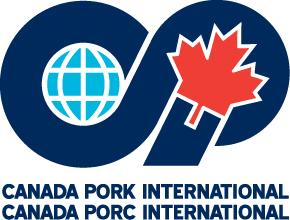Disruption along rail lines affecting meat sector
Canada exports seventy percent of pork production and fifty percent of beef production
 |
 |
 |
February 13, 2020 – OTTAWA The red meat industry is urging government intervention to seek a quick resolution to the disruption in rail service caused by the blockages to rail lines by protestors. Canadian beef and pork processors rely on rails to send their shipments to ports.
“We are urging government to seek a resolution and find a long-term viable solution for all parties. Ongoing disruptions affect Canada’s reputation as a reliable trading partner and the uncertainty is extremely detrimental to our members who rely on the rail system as a key delivery mechanism for their product” said Chris White, President of the Canadian Meat Council.
After getting impacted by the CN rail workers strike last fall, the meat industry’s supply chain and global distribution infrastructure are once again being interrupted as blockades are being set up across the country. Alternatives to rail transport are more expensive, a cost that is not passed on to the consumer, and have a great impact on the Canadian meat industry competitiveness.
“Not being able to rely on our transportation infrastructure is an added burden on an industry still reeling from trade issues with China, the country’s second-biggest market for pork” explained Trevor Sears, CEO of Canada Pork International.
“On the production side, we are monitoring the situation in case delayed fuel shipments cause a shortage in some areas. Pork producers rely on propane and natural gas to heat up their barns and ensure their animals are housed comfortably” said John Ross, Executive Director at the Canadian Pork Council.”
-30-
For media interviews or further information, please contact:
Gary Stordy— Director, Government and Corporate Affairs, Canadian Pork Council
613 236-9239 ext. 277
[email protected]
Marie-France MacKinnon – Vice President, Public Affairs, Canadian Meat Council
613-725-5805
[email protected]


